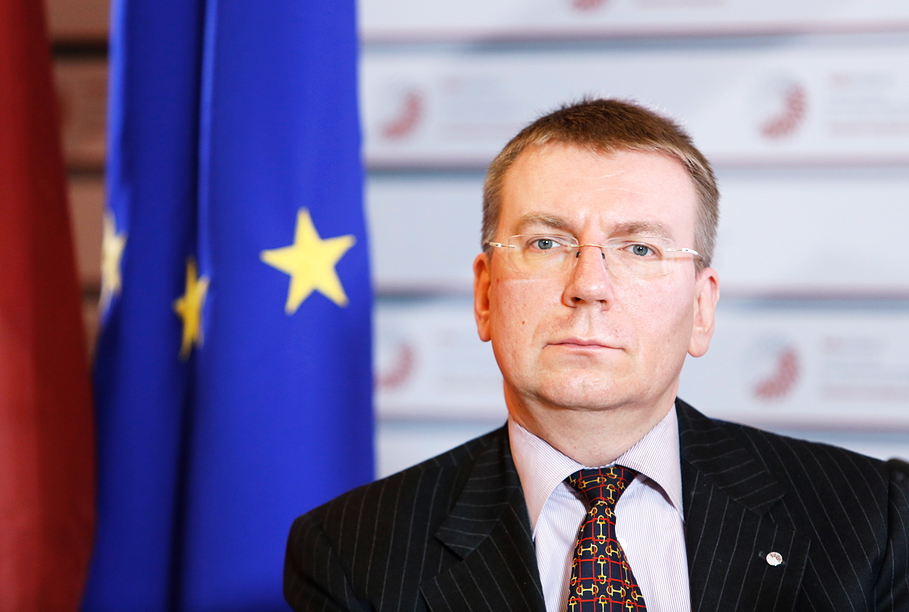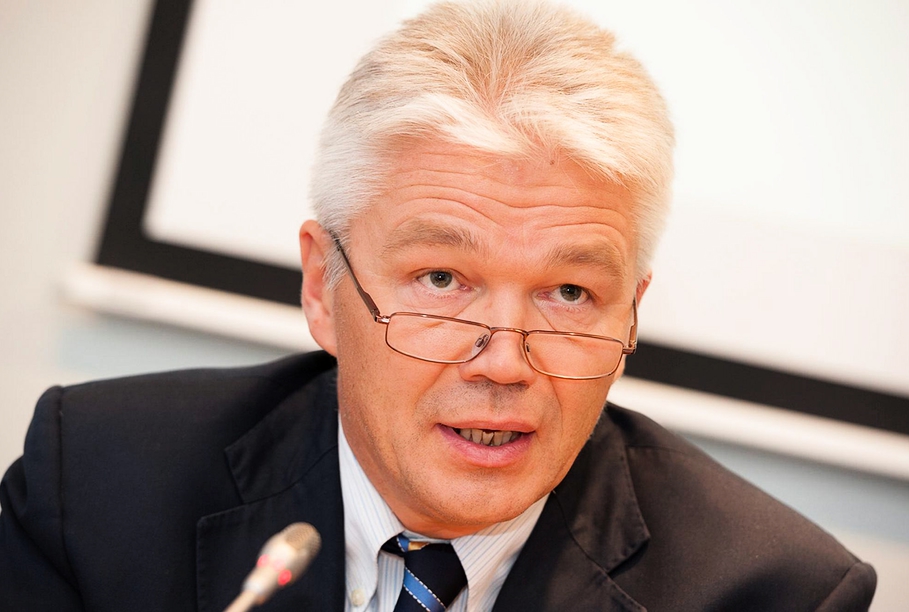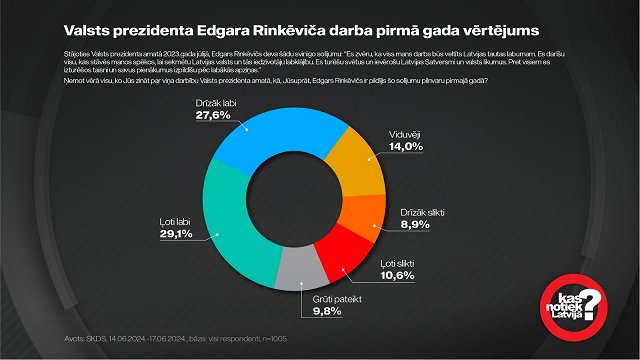Foreign Minister Edgars Rinkēvičs and NATO Strategic Communications Center of Excellence Jānis Kārkliņš spoke with Latvian Radio host Kārlis Streips about Latvia’s relations with its recently more-aggressive neighbor Russia Monday on the program 7 dienas Eiropā (7 days in Europe).
On his part Latvia’s chief diplomat Rinkēvičs talked about the newly floated idea of an EU-wide armed forces to include non-NATO member-state armies from Sweden, Austria and Cyprus, for instance. However, he termed it “a bit laughable that we raise this issue now when we have so much to do to bolster our NATO defense obligations and not dream about any brand new armed structures.”
On the other hand, he said the EU was fielding successful missions in Africa and was flexibly working under the battle group concept in joint operations with countries like Sweden, a model which could be used in future peacekeeping missions.
As for relations with Russia, Rinkēvičs said that recent talks with his counterpart focused not on accusations of reviving fascism or discriminating against non-citizens, but more on the issues of Ukraine and Crimea and how they have affected EU-Russia relations.
He said Latvia’s foreign service staff was “in high regard of Russian diplomacy, which is so well able to defend any position necessary. I think many of the facts which are so well known to them, such as both how the number of non-citizens here is going down, that it’s the choice of the non-citizens themselves and that naturalization is possible and nobody is getting persecuted here or discriminated against in any way, they know all this quite well, but I think that when you have a conscious political line that you must hold to then you do so whether you believe in it or not.”
On his part, NATO’s Strategic Communications Center chief told LR he had been busy giving interviews to Russian-language radio and television stations and other media in the region, but that his work had no direct contact with Russia’s own internal media channels.
He said that beyond creating quality programming that actually speaks to its target audiences, more needs to be done to prepare the public for media literacy, which he said is “a long-term project for the education system, starting with the teachers.”
Asked whether he thought that Russia was engaged in nuclear bluffing following its Ambassador to Denmark’s recent threatening remarks, Rinkēvičs said that “no matter how absurd it may sound, an ambassador represents his country and so his utterances must be taken with the utmost seriousness and solemnity. And I think that Danish society perceived it exactly and correctly so as the wave of outrage was understandable and expected, as our ambassador reported.
Now matter how we might wish for this to be just a heated exchange of words, one cannot leave signals like this unattended.
Unfortunately I must say that this kind of talk was never even used during the times of the Cold War, certainly no longer in the final phase of the era. Neither the US nor the USSR ever threatened each other with nuclear weapons outright in such a way.
Of course there were crises, but for a world leader of a superpower to talk on a daily basis about brandishing nuclear weapons in this post Cold-War time, well it just shows the kind of thinking that prevails in some of Russia’s circles and one should not just write something like that off. One shouldn’t fall into panic, either, but such statements need to be taken seriously,” said Latvia’s foreign minister.






























